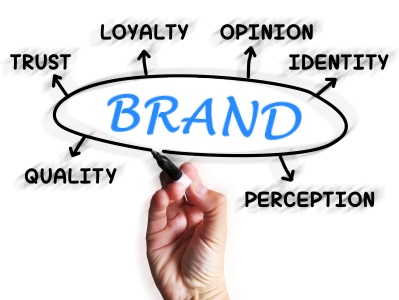What is Branding?
Branding is the marketing practice of creating a name, design or name that identifies and differentiates a product from other products. In an increasing competitive markets, an effective and efficient brand strategy gives you a major edge over others. However, your brand tells your customers what they can expect from your products and services, and also differentiates your delivery from that of your competitors. Your brand is derived from who you are, who you want to be and who people perceive you to be.
What is Ranking Factor?
Ranking factor is an algorithmic input that Google measures directly and uses to determine rank position in their algorithm. Between 2012 and 2013 Panda and Penguin updates destroyed well known keyword based SEO techniques. So more factors including brands are considered as a ranking factor for Google and other website ranking.
Now, The Brand awareness!
This is a very important part of the marketing strategy. One thing that is constant in the ranking factor research is an interesting peculiarity in the data that can be called the "brand factor", present in many factors and observations.
Experts believe that Google is no longer hiding its favor for brands as it unfairly rewards brands, especially the big ones with preference positions in its search results.This is based upon the fact that Google rewards websites that have lots of links pointing to them and have people talking about them in social media. Obviously, the big brands have more people talking about them and linking to them.

Google introduced "Google suggest" in 2008. Instead of allowing searchers to determine how they wanted to search, it started suggesting specific search queries that often recommended brands. A similar concept, known as Google instant was introduced in 2011. Unlike other updates or changes, Google was taking their proclivity towards brands a step further. Before they were just showing brand more often in the search engines. Now they were actually trying to effect searcher's behavior by suggesting brands before searchers could even finish typing what they were searching for.
By intentionally penalizing new sites, Google gives big brands an inherent advantage. To design, host and promote a valuable site (in the eyes of google) requires thousands of dollars. So there is a revolving door of new sites that rotate into existence (but not search engine results) because very few small businesses have an intentional and systematic invisibility field.
In 2006, BMW caught was caught hiding text. As google has said many times, showing the search engine is one thing and searchers another is one of the most dangerous violations of google's policies.
Smaller sites that were caught doing the same thing may have been banned permanently but BMW was only de-indexed for few days before returning to the Google's search results pages.
Google Ranking!
Google is already very efficient at identifying brands from particular sectors and at allocating their URLs a preferential ranking. Values like recognizability, user trust and brand image are also reflected in the SERPs to a certain extent.
If you own a reputed brand, have a solid marketing strategy and you want to add this to your market strategy, good news is here! Brands continue to stay immune to new SEO trends in 2013, as they did last year, as compared to other domains. Your brand website is supposed to have more back links with the brand name in the link text. Thankfully, these “brand links” are still not rated negatively by Google. Even average content from reputed brands or websites outrank great content from quality but lesser-known blogs.